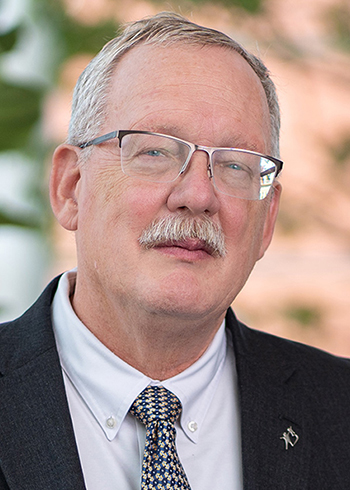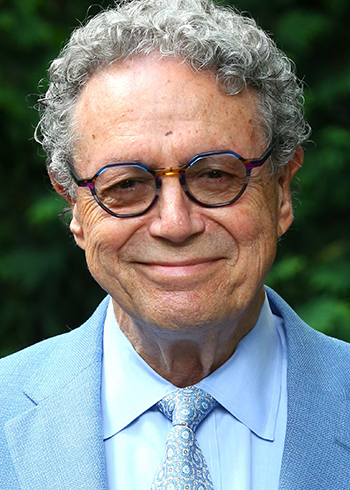Get to Know the Candidates
Jump to the profiles below:
Aug. 7, 2024 – The special election for State Bar of Wisconsin president-elect features two candidates familiar with the challenges faced by solo practitioners and small firm attorneys.
Electronic voting for the special election begins on October 10. The election will close at noon on October 25; the winner will be announced on October 28, and will serve as president-elect until June 30, 2025, before becoming president on July 1, 2025.
In this article, you’ll learn about each candidate’s background and views on the important issues facing the legal profession and the State Bar.
Dan Gartzke: Civil Litigator

Dan Gartzke takes a practical approach to the issues facing the State Bar, one informed by his experience as a civil litigator in both big-city and small-town law firms.
Gartzke grew up on Madison’s near-west side. His father was a lawyer and Wisconsin Court of Appeals judge.
“My father always wanted me to be a lawyer, and he got my older sister to be a lawyer too,” Gartzke said.
“What convinced me to follow in my father’s footsteps was that I saw how much he enjoyed the profession and the work,” Gartzke said. “It was truly leading by example.”
After graduating from U.W.-Madison and taking two years off to travel in Europe, Gartzke obtained his law degree from the University of Wisconsin Law School in 1986.
Gartzke’ s first job out of law school was at Lawton & Cates in Madison. Working under Dick Cates, Gartzke cut his teeth working on an accounting malpractice case that stretched on for nearly three years.
“In hindsight, it was perfect that I did that,” Gartzke said. “I had a wonderful experience working with Dick Cates.”
Small-town Lawyer
In 1993, Gartzke took a position with Duxstad McDaniel Law Group, S.C. in Monroe, to be closer to the home he shares with his wife, Tracey Schwalbe, in New Glarus.
“We were small-town lawyers,” Gartzke said. “It was a wonderful thing that I’d never had before and haven’t had since – people would walk in the door and say, ‘I’ve got a problem, can you help me?’”
Robert Duxstad, the firm’s founder, served as another mentor for Gartzke.
“I really learned the ethics of being a good lawyer when I worked with him and saw what it takes to run a good law firm,” Gartzke said.
The Importance of Mentoring
Why Is This Special Election Needed?
Jump to the sidebar below that explains why the special election is required.
Click here
Gartzke said if he’s elected, he plans to focus on the issue of attorney mentoring.
“Being mentored was very helpful to me over the years,” Gartzke said.
Gartzke, who’s served as a mentor through a Dane County Bar Association program, said opportunities for mentoring seem to be on the decline in the legal profession.
“I’m trying to figure out what to do to change that,” Gartzke said.
Gartzke said he’d spend his time as president-elect finding out what would-be mentors and mentees need from the State Bar.
“That’s something I’d like to expand on,” Gartzke said. “I’m not quite sure of the best way to do it.”
Link to Other Issues
Gartzke considers attorney mentoring to be linked to two issues recent State Bar presidents have worked to address: legal deserts in rural parts of Wisconsin and a decline in civility.
“If there’s a young lawyer in a rural area, who do they go to for advice?” Gartzke said. “It’s really important to get advice and talk things over.”
“Sometimes, the lack of civility is really a lack of understanding of what you need to do, how to go about it, how to have some ability,” Gartzke said. “Mentoring is about humility.”
In addition to the Dane County Bar Association, Gartzke has been active in the Lafayette and Green County bar associations, including serving as president of the latter.
Gartzke has also served as a mock trial coach for 19 years.
“It was a wonderful experience teaching kids what it’s like to be a lawyer,” he said.
The Great Outdoors
Gartzke and his wife spend their free time tending to their 15-acre spread. They raise sheep, do prairie restoration, plant trees, make maple syrup, and harvest pumpkins.
They also enjoy visiting their three children, who are spread out across America.
Gartzke said his term as president would be focused on building on the work of Past President Dean Dietrich and President Ryan Billings.
“It doesn’t make sense to me to take it in a whole different direction, unless there’s some pressing concern to address,” Gartzke said. “I want to work on continuity, and mentoring is the key piece I see with that.”
David Lasker: Family of Lawyers

David Lasker sees the State Bar and the issues facing it through the eyes of an attorney who practiced as a sole practitioner for four decades.
Lasker grew up in Chappaqua, New York. His father worked as a lawyer in New York City and was appointed to the U.S. District Court for the Southern District of New York by President Lyndon Johnson.
“He had a tremendous influence on me,” Lasker said of his father. “He used to let me read slip opinions out of his briefcase. I loved doing that when I was in middle school and high school.”
Lasker came to Wisconsin to attend the University of Wisconsin-Madison. After serving a stint in the National Teacher Corps, he obtained his law degree from U.W. Law School in 1973.
Solo Practitioner
After law school, Lasker hung out his shingle in Madison. For the first ten years, he maintained a general practice, taking whomever came in the door plus public defender appointments and referrals from other attorneys.
“My father used to tell people I did everything from zoning to murder,” Lasker said. “It was true, because I did handle a first-degree murder case in my first year as a lawyer.”
Eventually, Lasker focused on civil rights law.
“I found it was very demanding, and ultimately it introduced me to being a civil rights lawyer,” Lasker said.
“The more I would do criminal law and family law, the more cases came to me having to do with police misconduct and discrimination, so that’s how my practice grew after the first 10 years.”
Lasker made the move to municipal law in 2007.
Lasker served a temporary appointment with the Sauk County Corporation Counsel office. For the last 15 years, he’s served as corporation counsel for Juneau County.
Well-being Services Would Be a Priority
For many years, Lasker was a member of what is now the Civil Rights & Liberties Section. He twice served as chair of the section.
Atop Lasker’s list of priorities if he’s elected is the array of services that the State Bar provides to its 25,000 members – especially those directed at lawyer well-being.
“The State Bar’s mental health and well-being initiatives are crucially important, in my opinion,” Lasker said. “I would certainly want to keep that up.”
Lasker’s opinion of the State Bar’s services is informed by long service with the State Bar’s Wisconsin Lawyer Assistance Program (WisLAP).
“I’m a real believer in WisLAP,” Lasker said. “I’m a recovering addict. I’ve been a mentor and a monitor for WisLAP. I did that for decades.”
In 2013, Lasker was named the WisLAP volunteer of the year.
Public Communication
Lasker said he’d also focus on improving the State Bar’s relationship with the public.
“The public doesn’t seem to know a lot more about lawyers than lawyer jokes,” Lasker said. “I really think it’s important that we reach out to the public and have them know better how lawyers are educated and what we do, and why we charge the fees we do.”
Too often, Lasker said, the public is in the dark about our legal system.
“Lawyers seem to be a mystery to people,” Lasker said. “It’s a matter of education really, and communication.”
“I think the most important issue is, ‘Why should I have a lawyer?’” Lasker said. “The fact that it’s so important that you don’t have to do it yourself, you’ve got somebody doing it for you, effectively. It’s exciting to have good lawyer. I’d like to humanize us.”
Lasker said he would also maintain the State Bar’s focus on the shortage of attorneys in rural Wisconsin.
‘An Effective Steward’
Lasker, who lives in Mauston, spends much of his downtime visiting his son – who’s also a lawyer – and three grandchildren, who live in a Chicago suburb.
“I pretty much practice law and hold this job, but I do enjoy traveling. I’ve done a good job of using my vacation time to go places,” Lasker said.
If Lasker is elected, he said his polestar would be continuity.
“I would want to be an effective steward in keeping the State Bar going forward,” Lasker said.
Why Is This Special Election Needed?
The special election is required because of the following circumstances.
The membership elected Jane Bucher as State Bar president-elect in April 2023. The president-elect serves a one-year term before serving a one-year term as president.
Bucher announced in February 2024 that she applied for an open judicial seat on the Green County Circuit Court.
In March 2024, Gov. Tony Evers appointed Bucher to the judicial seat.
Under Wisconsin Supreme Court rules, judges cannot serve as State Bar officers or members of the State Bar’s Board of Governors.
Bucher resigned as president-elect, leaving a vacancy.
In April 2024, Ryan Billings won the election to serve as president-elect starting on July 1, 2024.
In May, the State Bar’s Board of Governors appointed Billings to fill the vacancy at president-elect, for the remainder of Bucher’s term.
This allowed Billings to become president on July 1, 2024, creating a vacancy in the president-elect position.
The special election in October will fill the vacancy.
The new president-elect will serve until June 30, 2025, when he or she will then become president of the State Bar on July 1, 2025.
A Nominating Committee identified candidates to run in the election. State Bar members can also run for president-elect by filing a petition signed by 100 active State Bar of Wisconsin members. The deadline to submit a petition is Aug. 17, 2024.
